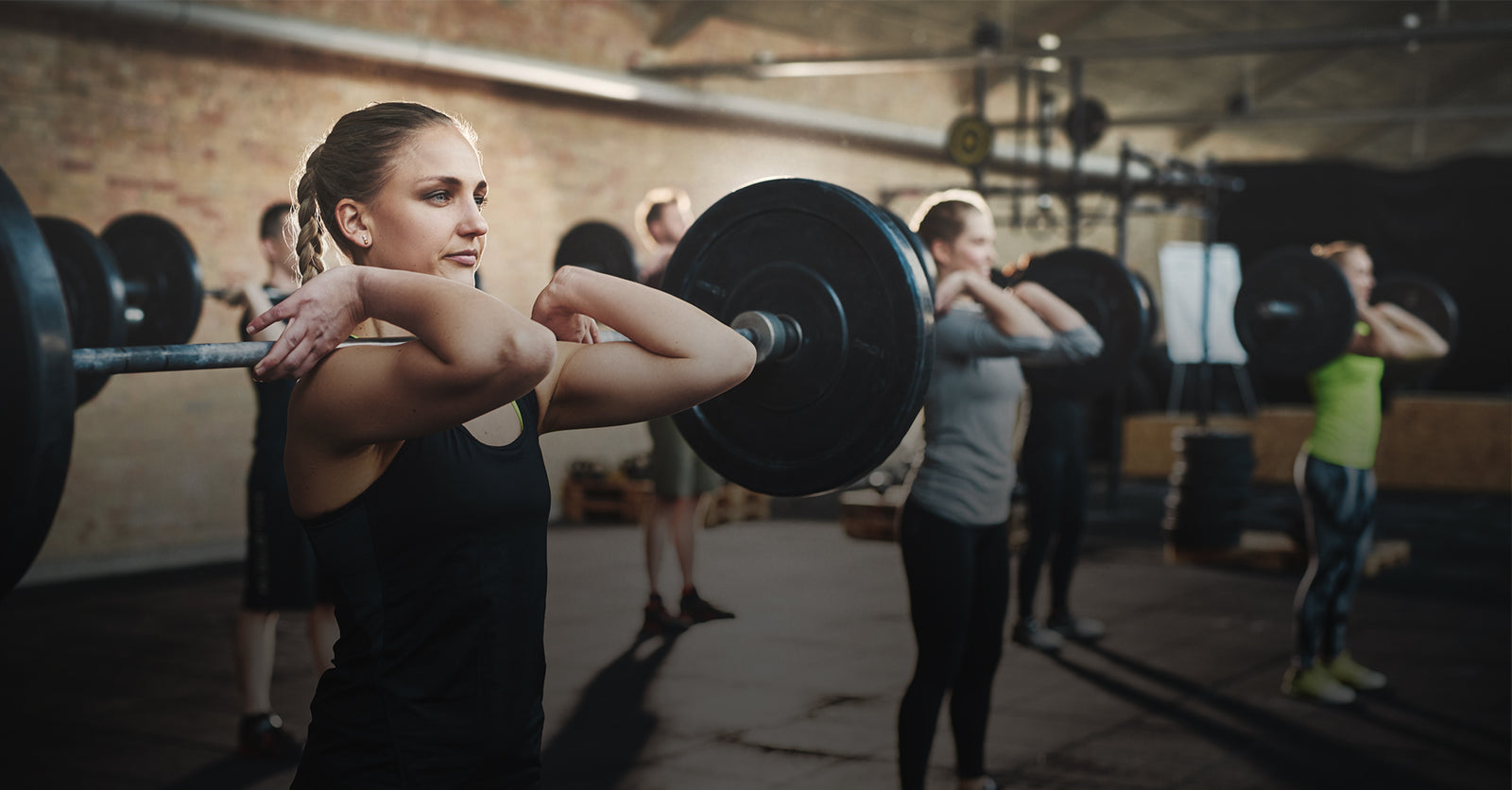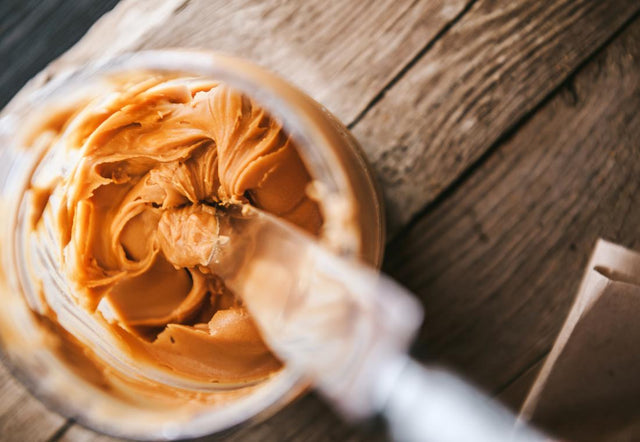You'll never be as young as you are right now. It's true. The culprit, Collagen! I wake up every morning and look in the mirror just to find another wrinkle, another fine line, telling me that I'm another day older. We're all aging and there's nothing you can do to stop it. Getting older and adulting is just the natural progression of life, but don't you wish there was a way to slow down the signs of that progression? There is. Stimulating natural collagen production can help regenerate collagen so that you can slow down the signs of aging.
What Is Collagen?
Collagen is an abundant protein within your body found in the bones, muscles, tendons, and digestive system. It's often referred to as the 'glue' that holds everything together. Collagen is what makes our skin glow, shine, and forms the elasticity and resilience to hold our expressions when we smile.
As we age, our collagen production naturally slows down, showing visible signs of its depletion through the form of facial wrinkles and sagging skin. Even though our natural collagen production will start to decline as we age, there are ways to naturally increase our collagen levels to help you fight the aging process.
RELATED ARTICLE The Ultimate Guide To Collagen: Uses, Benefits
1. How To Boost Collagen Production: Exfoliation 
Exfoliating helps stimulate collagen production, as it extirpates dead skin cells to help new skin cells regenerate and grow. Collagen generally resides on the dermal, beneath the outermost layer of skin the epidermis. Deep exfoliation, or shocking the skin is a catalyst for greater collagen production.
Look for a facial scrub and a cleanser that is environmentally conscious; products that are Paraben-free and that use all natural ingredients. We recommend the Obagi Nu-Derm System, or Youth To The People .
2. How To Boost Collagen Production: Citrus Fruit High In Vitamin C

The antioxidant properties found in Vitamin C play a vital role in collagen synthesis, which directly influences skin health. High concentrations of Vitamin C are found in the dermis and epidermis and rapidly decline as we age. Vitamin C also limits the damage induced by ultraviolet (UV) light from the sun. Vitamin C is by no means a sunscreen, however, the antioxidant activity found in Vitamin C helps protect against UV-induced damaged caused by free radicals [R]
Introduce citrus fruit like Kiwis, Oranges, Strawberries, and Grapefruit that are rich in Vitamin C into your diet. Throw some lemon into your water, or strawberries and kiwi into your salad. It’s easy.
RECOMMENDED PRODUCT Vitamin C Gummies
3. How To Boost Collagen Production: Krill Oil

One way you can boost your natural collagen production, is by preventing the loss of collagen. Organic high-quality fish such as tuna, salmon, are high in omega-3 fatty acids and vitamin A. Omega-3 fatty acids have anti-inflammatory properties and vitamin A also helps to scavenge free radicals, both of which can prevent the loss or degradation of collagen production.
Essential fatty acids, such as Omega-3 are derived from linolenic, linoleic and oleic acids, which cannot be produced by the body. Omega-3 fatty acids have been proven to help reduce UV-induced damage, as well as inhibit wrinkle formation through collagen synthesis [R].
If you don't like fish, then supplementing your diet with a high-quality Omega-3 is the best way to go. I recommend Krill Oil. Krill oil is a far superior source of the Omega-3 fats, then Fish Oil. The difference is in the bioavailability. Since the omega-3 fatty acids, EPA and DHA found in fish oil are packaged as triglycerides, they have to undergo additional processing in order for the body to actually use them.
Krill oil has been shown to be absorbed 68% better than fish oil [R] thereby suggesting that the Omega-3 polyunsaturated fats in Krill Oil are more bioavailable than Fish Oil [R]
RELATED ARTICLE Krill Oil Vs. Fish Oil: Which One Is Better?
Another significant difference that sets Krill Oil apart from Fish Oil, is that Krill naturally contains Astaxanthin, a powerful antioxidant, which is more potent and powerful than Vitamin C, Vitamin E, and CoQ10 which fights free radical damage.
4. How To Boost Collagen Production: Natural Lean Proteins

The best food sources to naturally boost collagen production are lean protein sources such as fish, chicken, and beef. Lean protein contains two key amino acids Lysine and Proline, which help in collagen and elastin production. Ensuring that you’re receiving an adequate amount of essential amino acids, is imperative for collagen production. Bone broth is an excellent source of bioavailable collagen.
RELATED ARTICLE 5 Collagen Rich Foods To Boost Collagen Production
Eggs are an (Egg)cellent source of age-fighting amino acids, Lysine, Proline, and Glycine, which are essential for collagen production, to help improve the elasticity and texture of your skin. Eggs are also rich in Sulfur, a trace mineral which is required for collagen production.
5. How To Boost Collagen Production: Staying Hydrated Will Boost Collagen

Keeping your skin properly hydrated and moisturized will provide the best environment for collagen production. Regular and plentiful amounts of water will help ensure, that the color and texture of your skin continues to glow as new cells are able to generate.
Drink more water and use a natural, paraben free moisturizer to properly hydrate your skin throughout the day to boost natural collagen levels.
RELATED ARTICLE Combating Dehydration With Water & Electrolytes
6. How To Boost Collagen Production: Supplement With Collagen Hydrolysate

Research has shown that supplementing with Collagen, is the best way to naturally boost natural collagen levels. Collagen Hydrolysate, can improve skin elasticity, moisture, and reduce signs of aging [R]
So what's the best Collagen supplement? Picking the right type of Collagen powder be a little challenging with so many different options. All types of collagen, however, will have similar benefits, in terms of promoting healthier skin and promoting joint health. The biggest difference between supplements is in the additives.
It’s important to take a Collagen supplement that contains ONLY hydrolyzed collagen peptides, without any added ingredients or proprietary blends to avoid fillers and substitutes. Choose a Collagen Protein that is low in sodium, and made with pure ingredients.
RELATED ARTICLE Is Collagen Better Than My Post-Workout Protein Shake?
How To Boost Collagen Production: Takeaway
Boosting your natural collagen production can definitely help in slowing the signs of aging, by keeping your skin supple, young, and glowing. By implementing some of the recommendations above, you can give structure to your skin, bones, muscles, and all other connective tissue to look and feel young.
Looking for the perfect Collagen Protein To Get Your Beauty Boost?
SWOLVERINE IS AN ENDURANCE ATHLETE AND ACTIVE LIFESTYLE BRAND. MADE FOR THE ELITE ATHLETE, AND THE STRONG-WILLED OUR PRODUCTS WERE DESIGNED TO FUEL YOUR ATHLETIC PERFORMANCE. WE PERFORM WHEN YOU PERFORM.
We believe that everyone can optimize not only their athletic performance but their human potential. The way we believe we can optimize performance is through transparency, clinically effective doses, and clinically proven ingredients with evidence-based outcomes. We provide the nutrients you need to power your active lifestyle.
References
Michels, Alexander. “Vitamin C and Skin Health.” Linus Pauling Institute, Oregon State University, 23 May 2017, lpi.oregonstate.edu/mic/health-disease/skin-health/vitamin-C.
Schagen, Silke K. et al. “Discovering the Link between Nutrition and Skin Aging.” Dermato-endocrinology 4.3 (2012): 298–307. PMC. Web. 13 Oct. 2017.
Proksch E, Segger D, Degwert J, Schunck M, Zague V, Oesser S. Oral supplementation of specific collagen peptides has beneficial effects on human skin physiology: a double-blind, placebo-controlled study. Skin Pharmacol Physiol. 2014;27(1):47-55.














